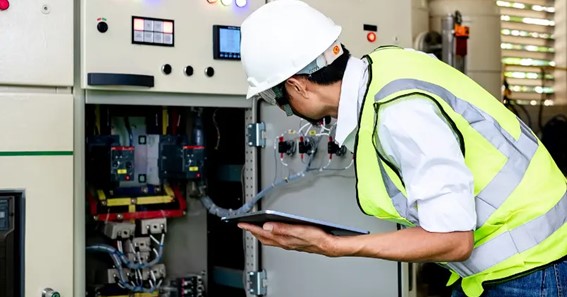An Electrical Installation Condition Report or an EICR is a safety report conducted by an electrician to
report on the state of the electrical installation in your home – think of it like a MOT for a property.
EICR provides peace of mind that a home is electrically safe and they are not expensive to carry out
when compared to the cost of an annual car service or annual boiler service but yet could save a
substantial sum of money as an EICR would pick up on a potential problem before it became a serious,
costly issue.
For privately owned domestic properties, it’s not a statutory requirement to have an EICR, it’s just a
good idea. It’s advisable that the electrical installation of your property is tested and inspected at
regular intervals and no longer than once every ten years. For Private Rented Domestic properties
safety checks – EICRs are compulsory from 01 July 2020.
Prior to 2012 the EICR was known as a Periodic Inspection Report or a PIR.
So, why should you consider having an EICR? Read on to find out…
✓ To ensure there’s no damage to any electrical installations
As part of the EICR your electrician will conduct a visual inspection to look out for damaged or broken
plug sockets, switches, light fittings and fuseboards and also signs of overheating and burning.
✓ To determine if electrical devices are installed in the right locations
For example, wall mounted light switches shouldn’t be installed inside bathrooms.
✓ To check your earthing
As part of the EICR your electrician will check that your earthing system is suitable for your electrical
installation. It is vital that you have adequate earthing for both the protection of you and others in your
property and the property itself.
✓ To check if RCDs are installed and to check their performance if they are
Your electrician will first of all check if Residual Current Devices (RCDs) are installed and if they are, they
will check if that offer adequate protection from electric shock.
✓ To determine just how much a risk any possible issues are
To determine just how much a risk any possible issues are, your electrician will number them from C1
to C3 on the EICR.
When undertaking a consumer unit / old fuse board change, it is important to ensure that a competent electrician completes this important job.
Think of your fuse board as the main hub of your home – it’s the ‘thinking centre’ to all electrical aspects in your home. If the job is carried out incorrectly, your home will be in a dangerous condition and your family is then at risk from electrical harm.
Firstly, I will outline the main reasons why you may need or want to upgrade your old fuse board to a new 18th Edition amendment 2 Consumer Unit:
You are having some other electrical work carried out and need to comply with the regulations. Your old fuse board is overloaded and starting to cause problems for the remainder of the installation. Your wiring installation is in poor condition but you cannot afford a rewire, changing to a 18th Edition amendment 2 Consumer Unit will offer some protection.
Whatever the reason upgrading an old consumer unit to one incorporating to each circuit Residual Current Circuit Breakers with overcurrent (RCBO) is a job that many people will now have to consider at some point.
The above points may have been raised by another tradesperson in your home, such as a builder if a large building project is undertaken.
Please DO NOT be tempted into hiring anyone who IS NOT a qualified electrician to carry out electrical work in your home, even if they offer to carry out the work for a fraction of the price because ‘they know all about electrics’.
It’s not just the price that counts, a competent electrician will be fully qualified, part P compliant and fully insured to do the job AND have a lengthy guarantee on the job for years to come.
If the person fitting the consumer unit is not qualified, Part P compliant, and is not insured, it really is better to walk away. These people are not interested in your safety or future well being, they are only interested in your cash!
Yet over the years I have come across the same objections about price when quoting for a replacement consumer unit /fuse board. They normally go as follows…
“I can buy one myself for £129 in a well-known DIY Shop, my mate that works for %%%%%% can do it for £xxx, I’ve had a quote from my builder and he reckons he can do it for £xxx, Mick down the pub said if I get the board, he’ll fit it for £60”
Please don’t believe anyone who say you don’t need a certificate or dis-regards the importance of certification. Not only if an electrical certificate your peace of mind that your home is safe, it is also an important document that is needed should you wish to sell or let your home in the future.
It is not simply a piece of paper signed by the electrician, it is a legal document and the electrician needs to carry out several tests on the installation before they can issue a certificate.
The Electrician who carries out the installation should also issue the certificate. BEWARE some ‘electricians’ employ someone else to issue the certificate. This practice is NOT APPROVED and means your electrician is not Part P compliant.
So having obtained a quote from a genuine electrician, you might be wondering how they arrive at the cost.
Click Here – Unlocking Test Data Efficiency: Streamlining Data Operations in the Testing Lifecycle

